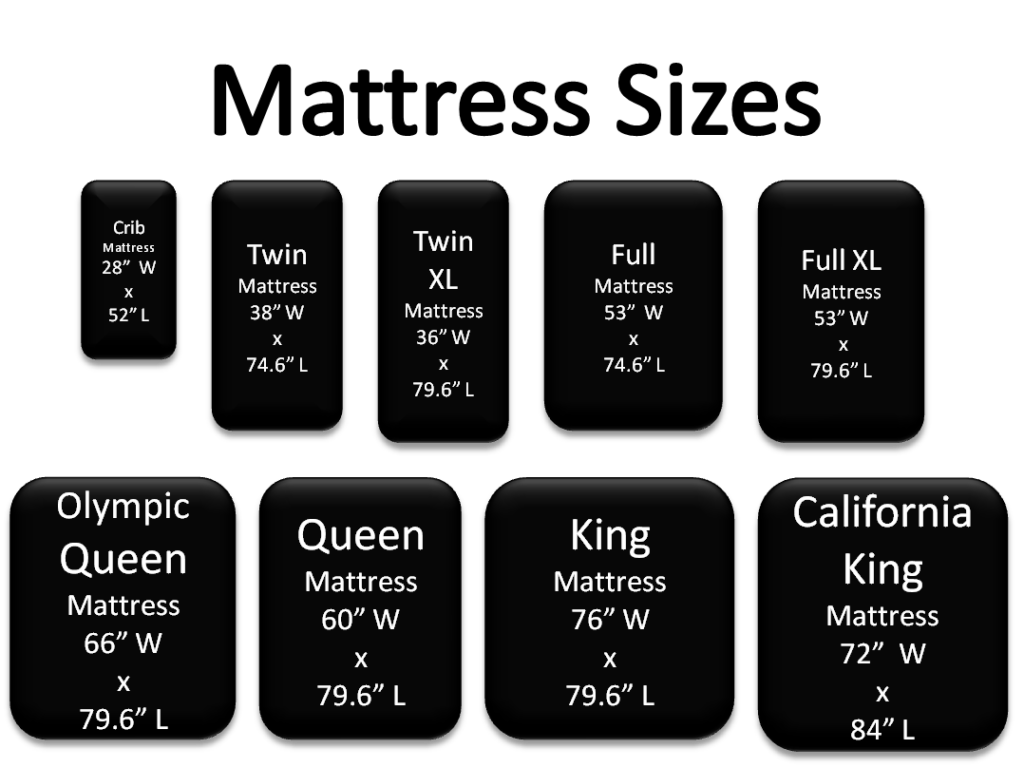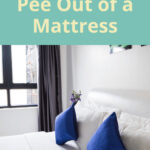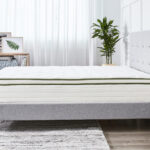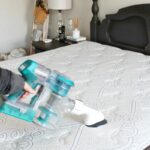When considering the purchase of a bassinet for a new bundle of joy, one of the most important decisions you’ll need to make is what size mattress to get. The size of a bassinet mattress is important for your baby’s safety, as well as for their comfort. In this article, we’ll help you discover what size mattress you need for your bassinet so you can provide the optimal sleeping environment for your baby.
Types of Bassinet Mattresses
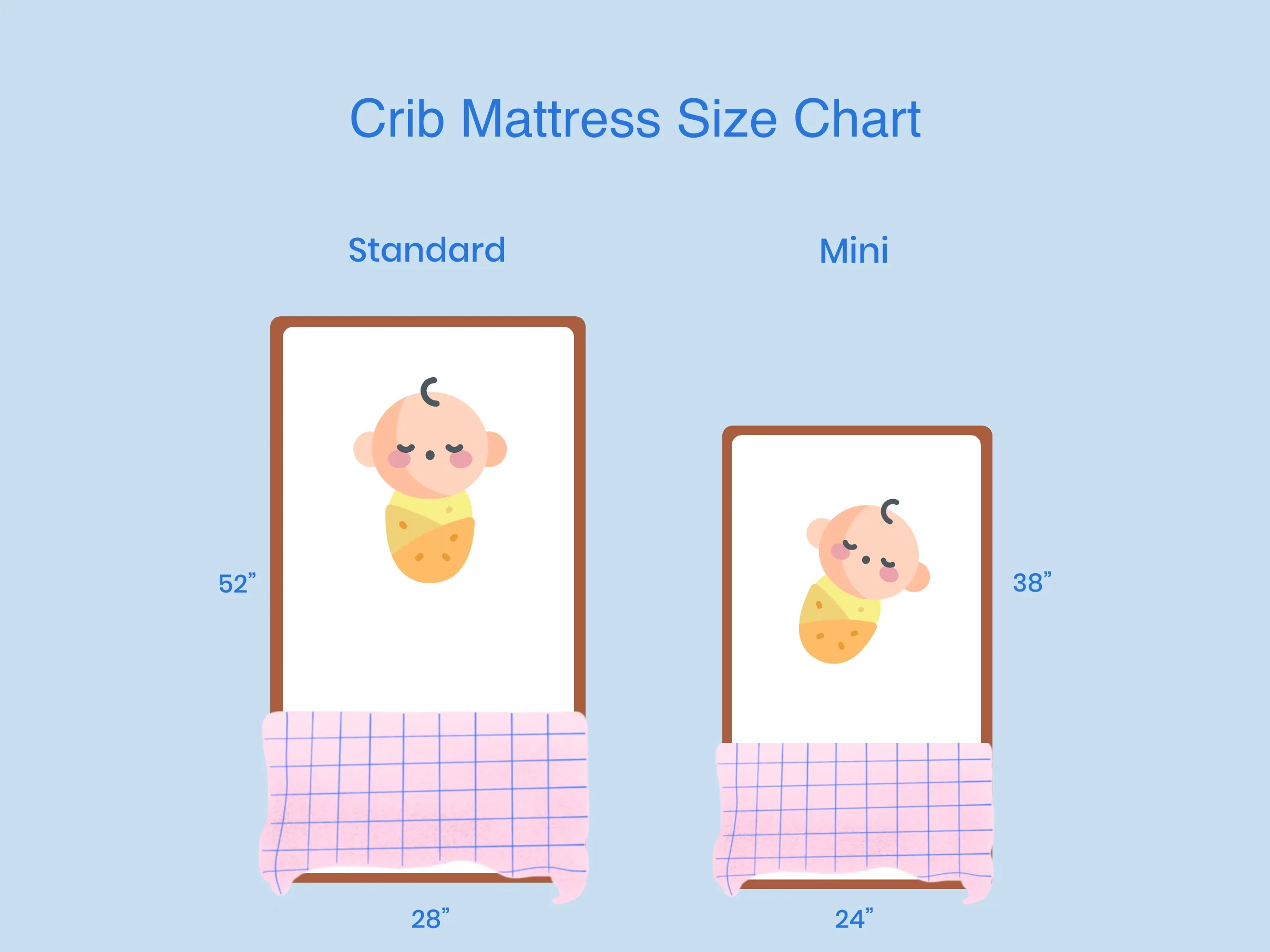
Bassinet mattresses come in various sizes and types. All bassinet mattresses are designed to fit snugly into the bassinet and provide a comfortable sleeping surface for your baby.
Foam Mattresses: Foam mattresses are lightweight and provide good support. They typically measure around 3 inches thick and are the most common type of mattress used in bassinets.
Innerspring Mattresses: Innerspring mattresses are more supportive than foam mattresses and usually measure between 3 and 6 inches thick. They provide excellent support and durability.
Organic Mattresses: Organic mattresses are made from natural materials such as wool, cotton, and bamboo. They are hypoallergenic and offer good support. They are usually more expensive than other types of mattresses.
What is the Size of a Bassinet Mattress?
The size of a bassinet mattress depends on the size of the bassinet. Most bassinet mattresses measure 27” x 16”, but some may be slightly larger or smaller. It is important to measure the bassinet before purchasing a mattress to ensure that it fits properly.
Standard Bassinet Mattresses
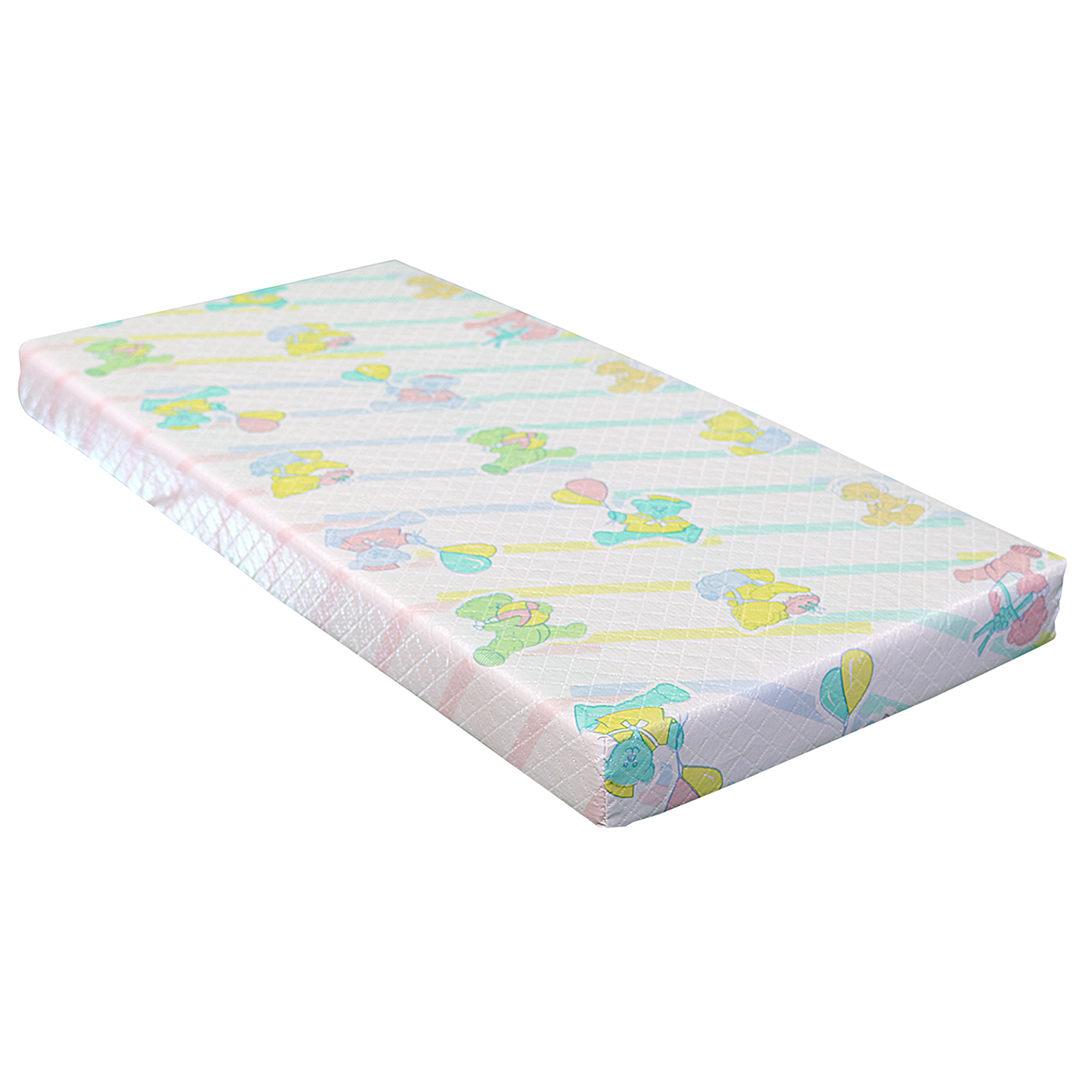
Standard bassinet mattresses are typically made of foam and measure at least 1-2 inches in thickness. The ideal thickness for a bassinet mattress should be no more than 2.5 inches to ensure the mattress is firm enough to provide the necessary support for your baby. The mattress should also fit snugly in the bassinet frame and should not have any gaps where an infant could get stuck.
| Material | Thickness |
|---|---|
| Foam | 1-2 inches |
| Ideal | 2.5 inches or less |
When selecting a bassinet mattress, make sure it is firm enough to provide adequate support for your baby. It should also fit securely within the bassinet frame and there should be no gaps that could pose a risk to your infant. To ensure the mattress is the correct size and thickness for your bassinet, measure the interior of the frame before making a purchase.
Portable Bassinet Mattresses
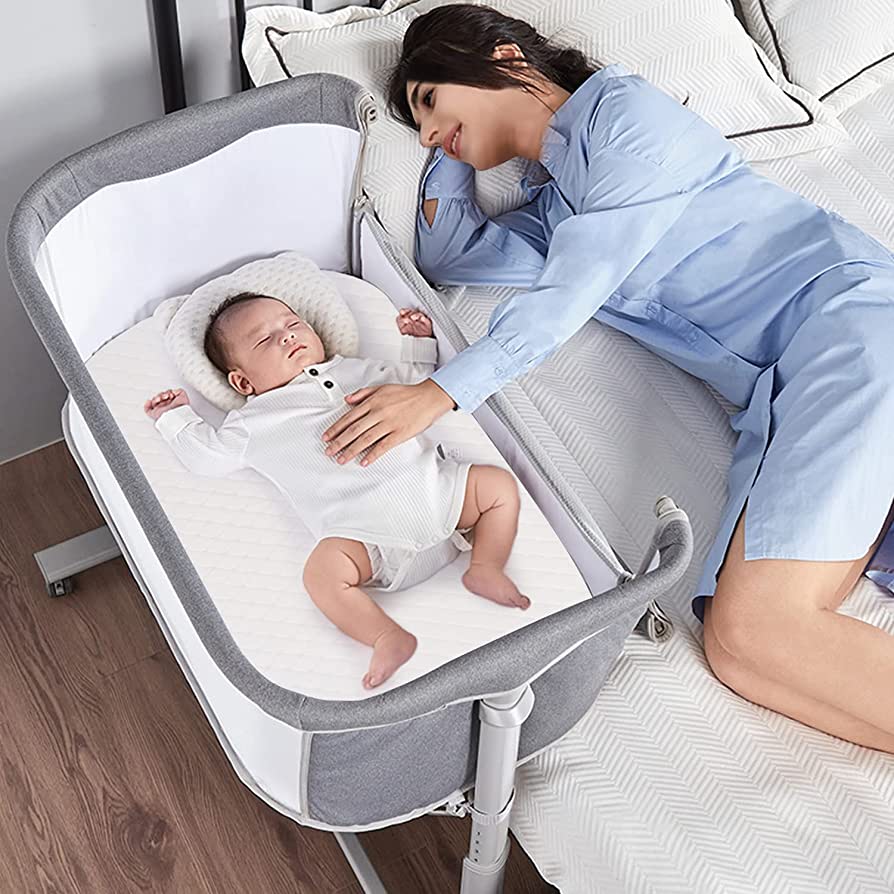
Portable bassinet mattresses are typically much smaller than traditional mattresses and can range in size from 18 to 24 inches in length and 10 to 14 inches in width. The depth of these mattresses can also vary, ranging from 1 to 4 inches. The portability of these mattresses makes them a great option for travel or for those who may need to move the bassinet from room to room.
Table: Portable Bassinet Mattress Sizes
| Length | Width | Depth |
|---|---|---|
| 18 – 24 inches | 10 – 14 inches | 1 – 4 inches |
What Size is a Standard Bassinet Mattress?
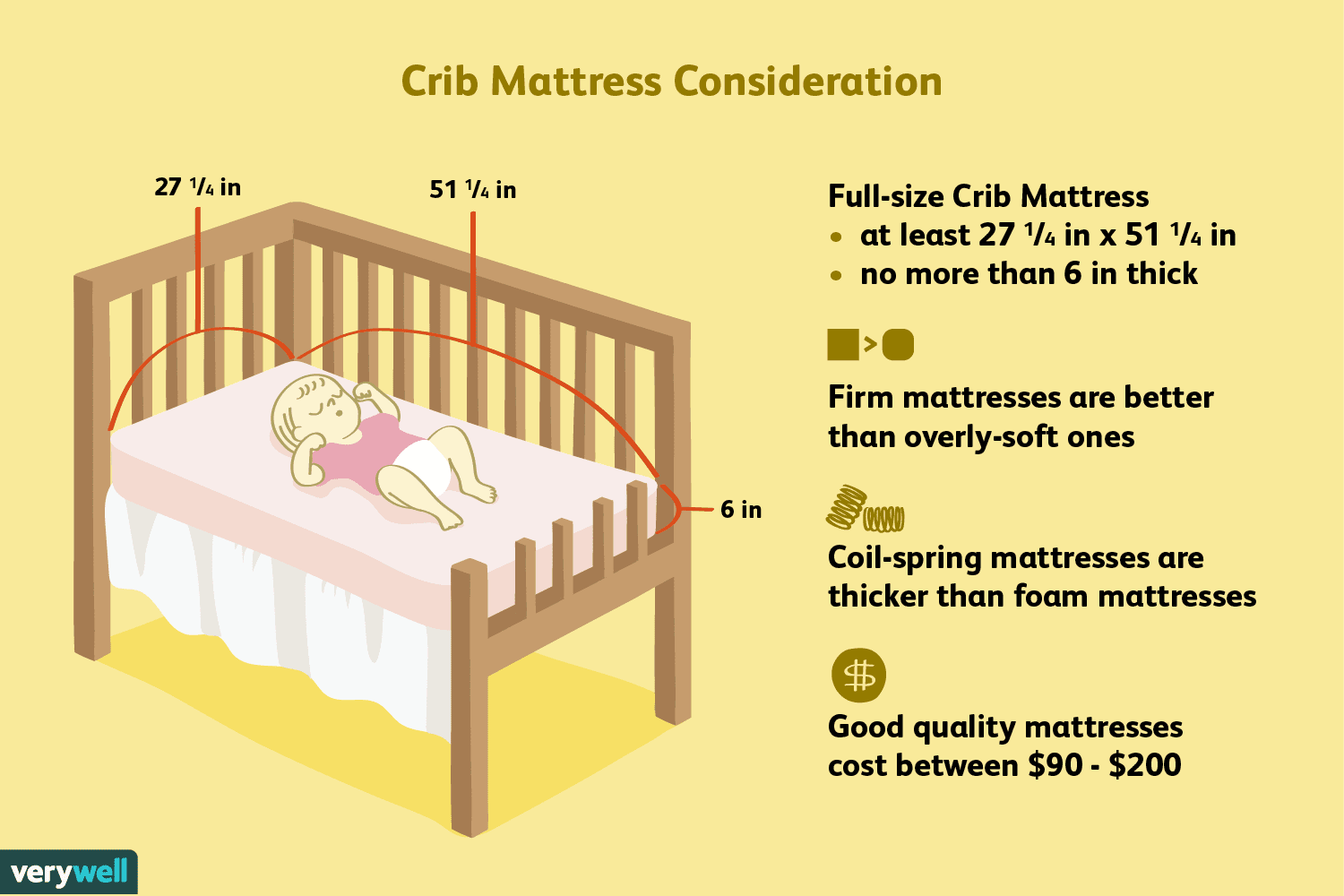
A bassinet mattress is the most important factor when it comes to creating a safe and comfortable sleep environment for your baby. The size of a standard bassinet mattress is typically 15×30 inches.
- Non-Toxic & Safe – A standard bassinet mattress should be made of non-toxic and safe materials that are free of chemicals and toxins.
- Firm & Supportive – A bassinet mattress should be firm and supportive, so it can provide the necessary cushion and comfort for your baby.
- Waterproof – A standard bassinet mattress should be waterproof, so it can be easily wiped clean in case of any accidents or spills.
When choosing a bassinet mattress, it is important to make sure that it is the right size for your baby and the bassinet itself. It is important to note that the size of your baby’s bassinet mattress will depend on the type of bassinet you have. It is important to measure the inside of the bassinet before purchasing a mattress, to make sure it will fit properly.
It is also important to make sure that the mattress you choose is breathable, so your baby can stay cool and comfortable while they sleep. A good quality bassinet mattress should be made of durable and breathable materials that can provide the necessary cushion and support for your baby.
When choosing a bassinet mattress, it is important to consider the size, materials, and breathability. Ensuring that your baby is comfortable and safe while they sleep should be a top priority.
What Size is a Portable Bassinet Mattress?
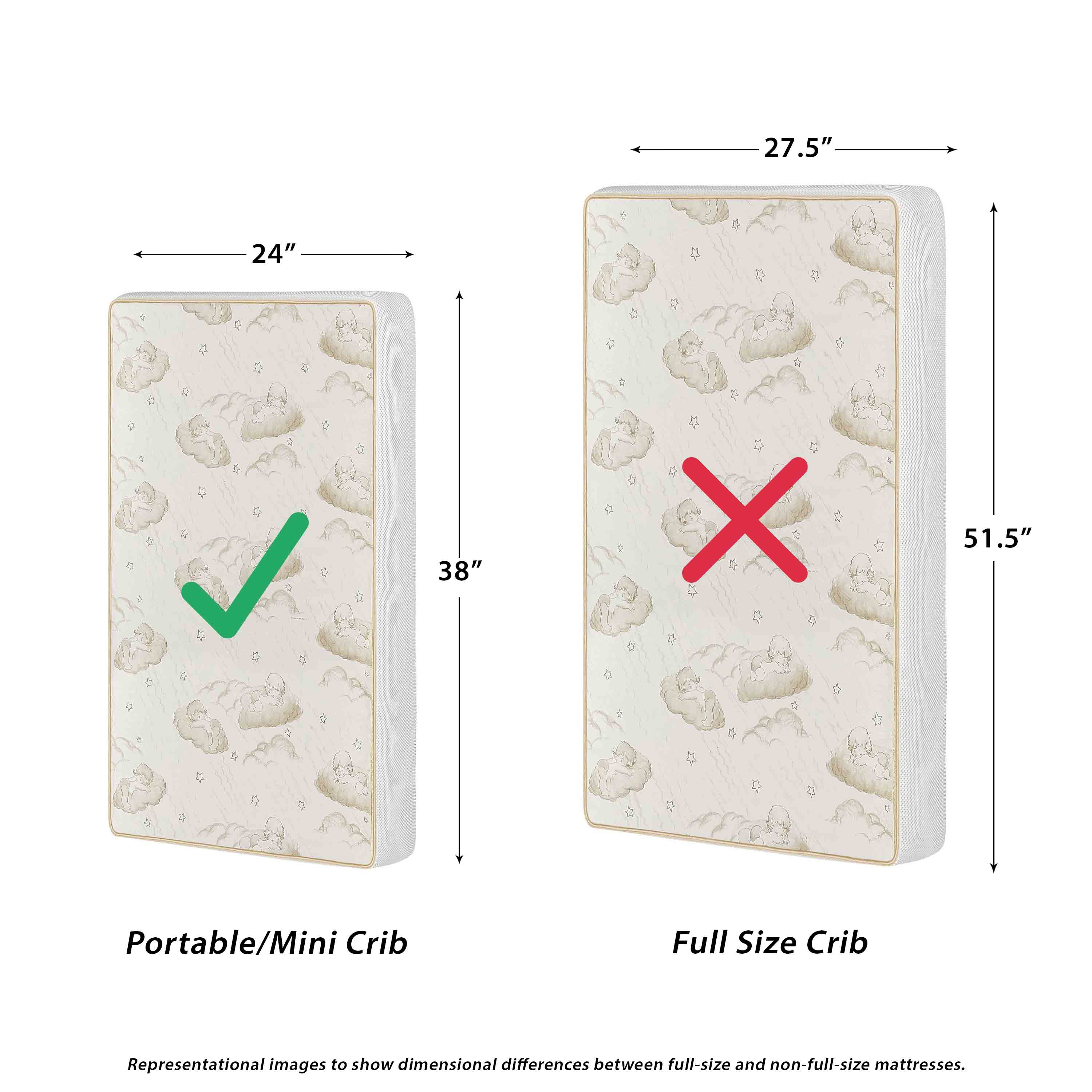
The size of a portable bassinet mattress varies depending on the type and make of the bassinet. Generally, these mattresses range from 32-inches to 38-inches in length and 15-inches to 18-inches in width.
Here are some interesting facts about portable bassinet mattresses:
- The average size of a portable bassinet mattress is 33 inches by 17 inches.
- The thickness of a mattress for a portable bassinet should be between 1.5-2 inches.
- Most bassinets are designed to fit mattresses with a maximum thickness of 2 inches.
- If using a mattress with a thickness greater than 2 inches, the bassinet must be raised with blocks or risers to ensure the baby’s safety.
- It is recommended that the mattress for a portable bassinet be firm and fit snugly inside the bassinet.
- When buying a mattress for a portable bassinet, it is important to make sure that it complies with safety standards.
The size and type of mattress you choose for your bassinet will depend on the size and shape of the bassinet, as well as the size of the baby. It is important to make sure that the mattress fits snugly and that there are no gaps between the mattress and the sides of the bassinet. In addition, make sure that the mattress is firm and complies with safety standards.
How Thick Should a Bassinet Mattress Be?
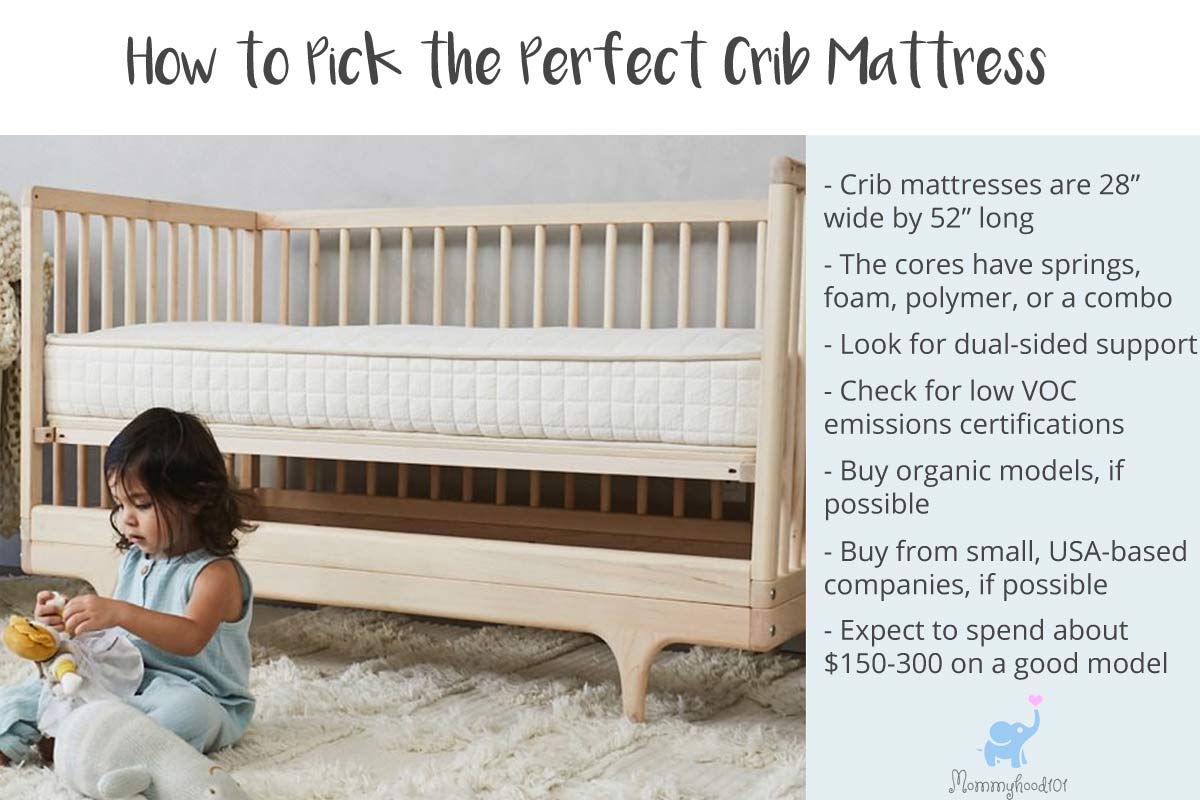
Bassinet mattresses should be just thick enough to provide comfort and support for your baby. Generally, a bassinet mattress should be between 1-3 inches thick. The thickness should be dependent on the size of your bassinet.
- Smaller bassinets: A thinner mattress of 1-2 inches is suitable for a smaller bassinet. This is ideal for newborns.
- Larger bassinets: A thicker mattress of 2-3 inches is best for larger bassinets.
It is important to ensure that the mattress fits your bassinet properly. Too thick a mattress can be dangerous as it can cause your baby’s head and body to slump, which can be dangerous. To check the fit, insert two fingers between the mattress and the sides of the bassinet. If the gap is greater than two fingers, the mattress is too thick and needs to be adjusted.
The type of material used in the mattress is also important. It should be made of breathable and comfortable material, such as cotton or polyester, and should be free of any hazardous chemicals.
When selecting a mattress for your bassinet, it is important to consider the thickness, size, and material. A bassinet mattress should be just thick enough to provide comfort and support for your baby without compromising their safety.
Shopping for a Bassinet Mattress
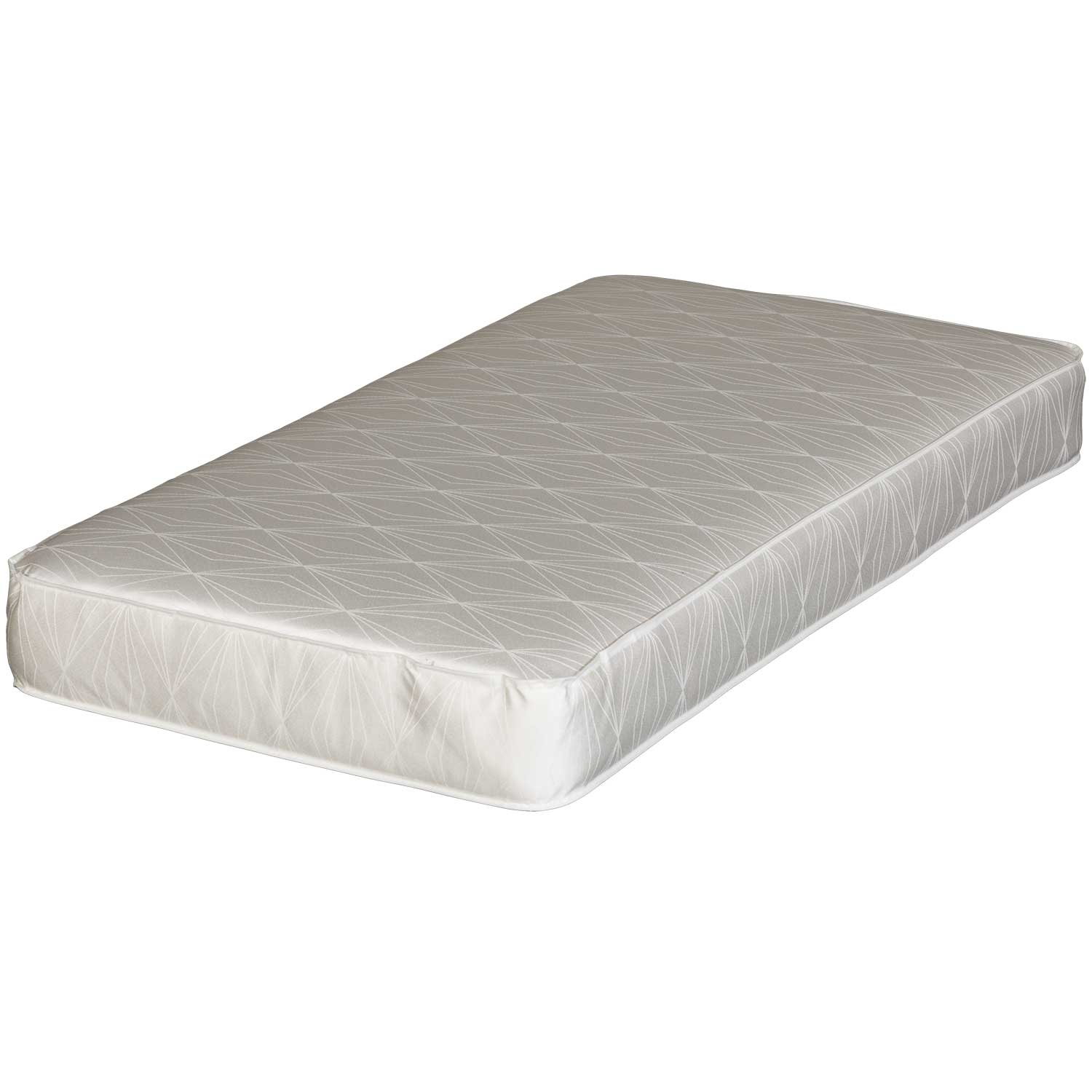
A bassinet mattress is an important investment for your baby’s comfort and safety. When shopping for a bassinet mattress, you need to consider the following factors:
- Size – make sure the mattress is the right size for your bassinet
- Firmness – opt for a mattress that is firm and supportive yet comfortable
- Material – select a mattress with a quality, breathable material like organic cotton
- Safety – choose a mattress that meets safety standards such as ASTM and CPSC
It’s also important to read customer reviews of the mattress you’re considering to get an idea of the quality and comfort. Once you’ve chosen the right mattress for your bassinet, be sure to measure it before purchasing to make sure it fits properly.
What Materials Should You Look For?
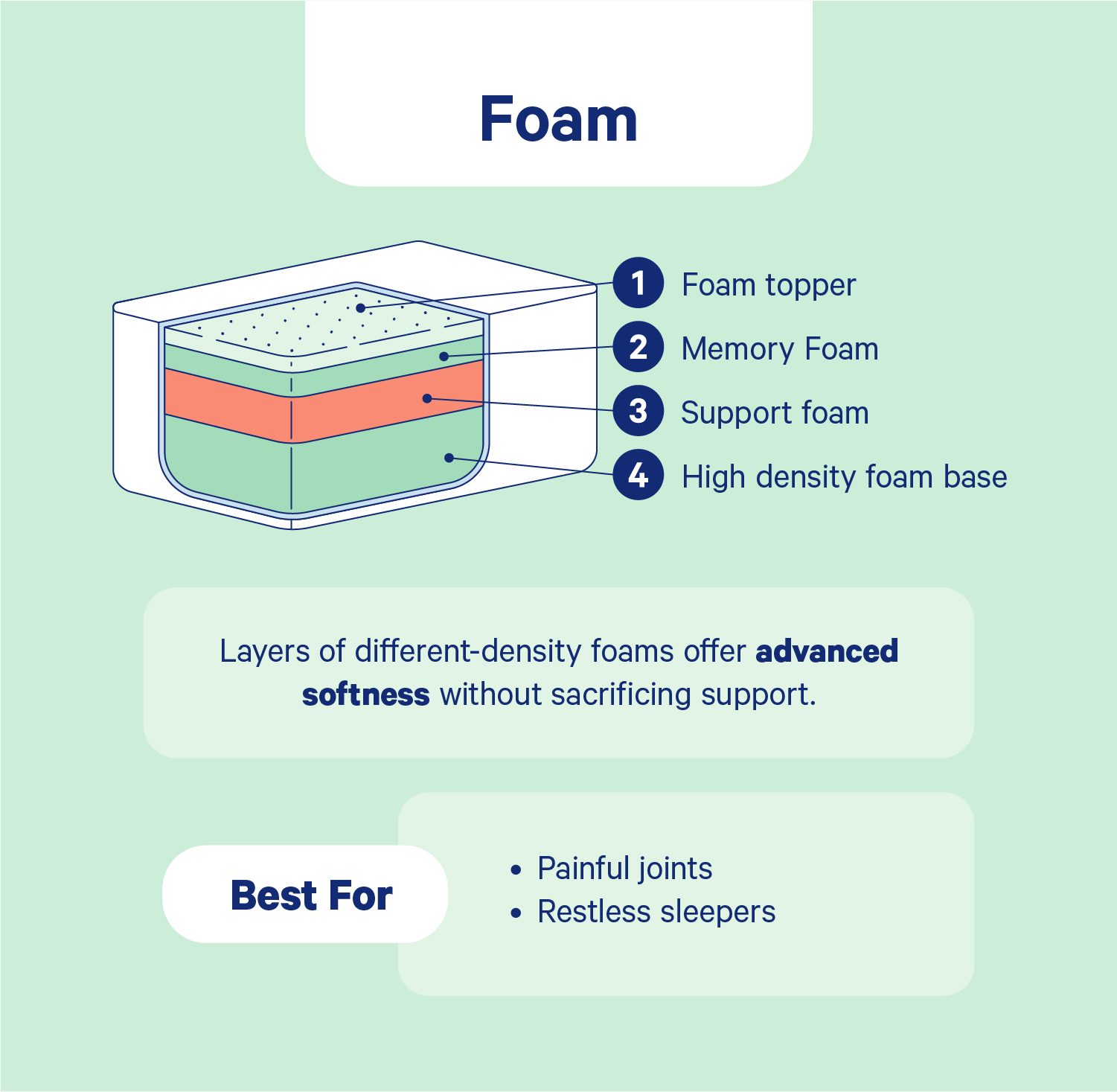
When shopping for a bassinet mattress, it’s important to consider the type of materials used. It should be made of a material that is breathable, hypoallergenic, and durable.
- Breathable
- Hypoallergenic
- Durable
Choose a mattress that is made of a quality material that is free from chemicals and toxins. Avoid foam mattresses as they can be too soft and can pose a suffocation risk. The best bassinet mattresses are made with a combination of organic cotton, wool, and coconut coir. These materials are breathable, safe, and provide the best support for your baby.
When it comes to the size of your bassinet mattress, the standard size is 16 inches wide by 32 inches long and 2-3 inches thick. However, you should always check the manufacturer’s specifications for the exact measurements of the mattress you are purchasing.
How Much Should You Spend?
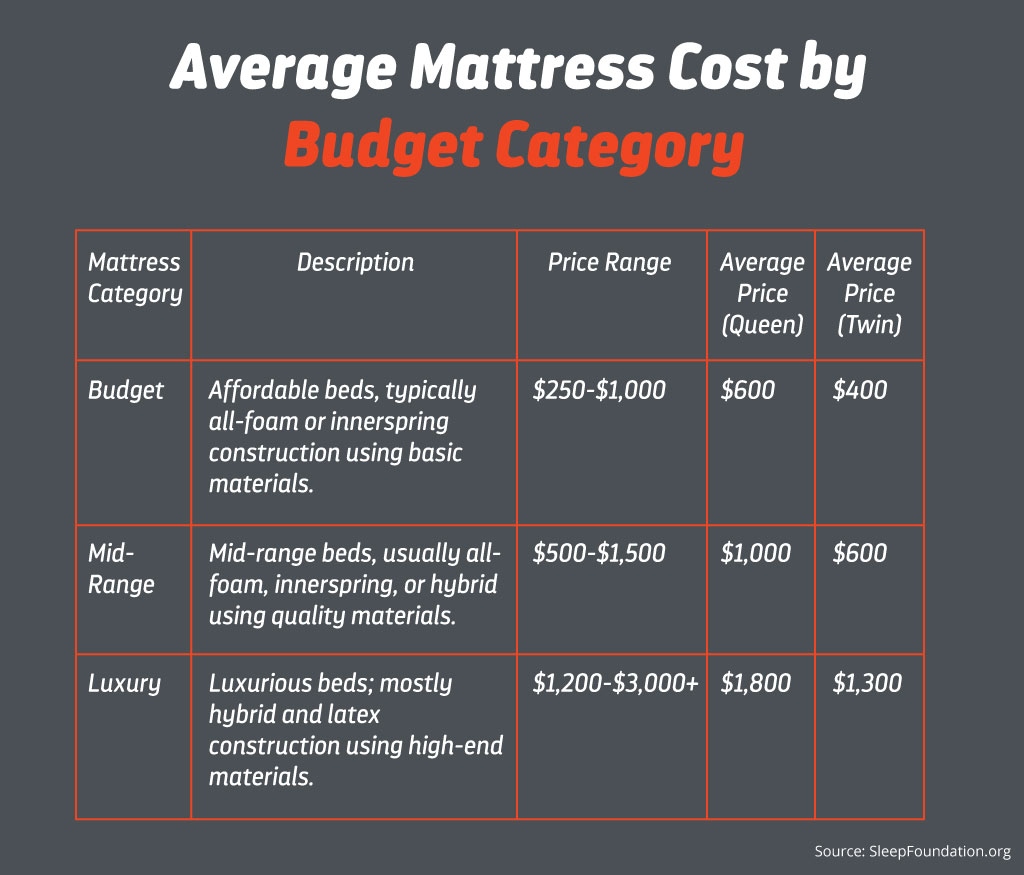
When it comes to buying a mattress for your bassinet, the price can range from very affordable to quite expensive. The price depends on the size and quality of the mattress. Generally, you can expect to pay anywhere from $50 to $200 for a mattress for a bassinet.
Aside from the size, you also need to consider the thickness of the mattress. A good quality mattress should be at least two inches thick to provide your baby with adequate cushioning. Cheaper mattresses may be thinner, so make sure to check the thickness before you purchase.
Finally, it’s important to note that the size of a bassinet mattress is usually slightly smaller than the size of a standard crib mattress. The most common size is 24” x 38”, but sizes may vary depending on the bassinet model. Therefore, always check the manufacturer’s instructions or measure the bassinet before you buy a mattress.
Overall, when it comes to budgeting for a bassinet mattress, make sure to factor in the size, thickness, and quality. The more you spend, the better quality mattress you can expect for your baby.
Keywords: what size is a bassinet mattress, what is the size of a bassinet mattress, how thick should bassinet mattress be
How to Ensure You Purchase the Right Size Bassinet Mattress
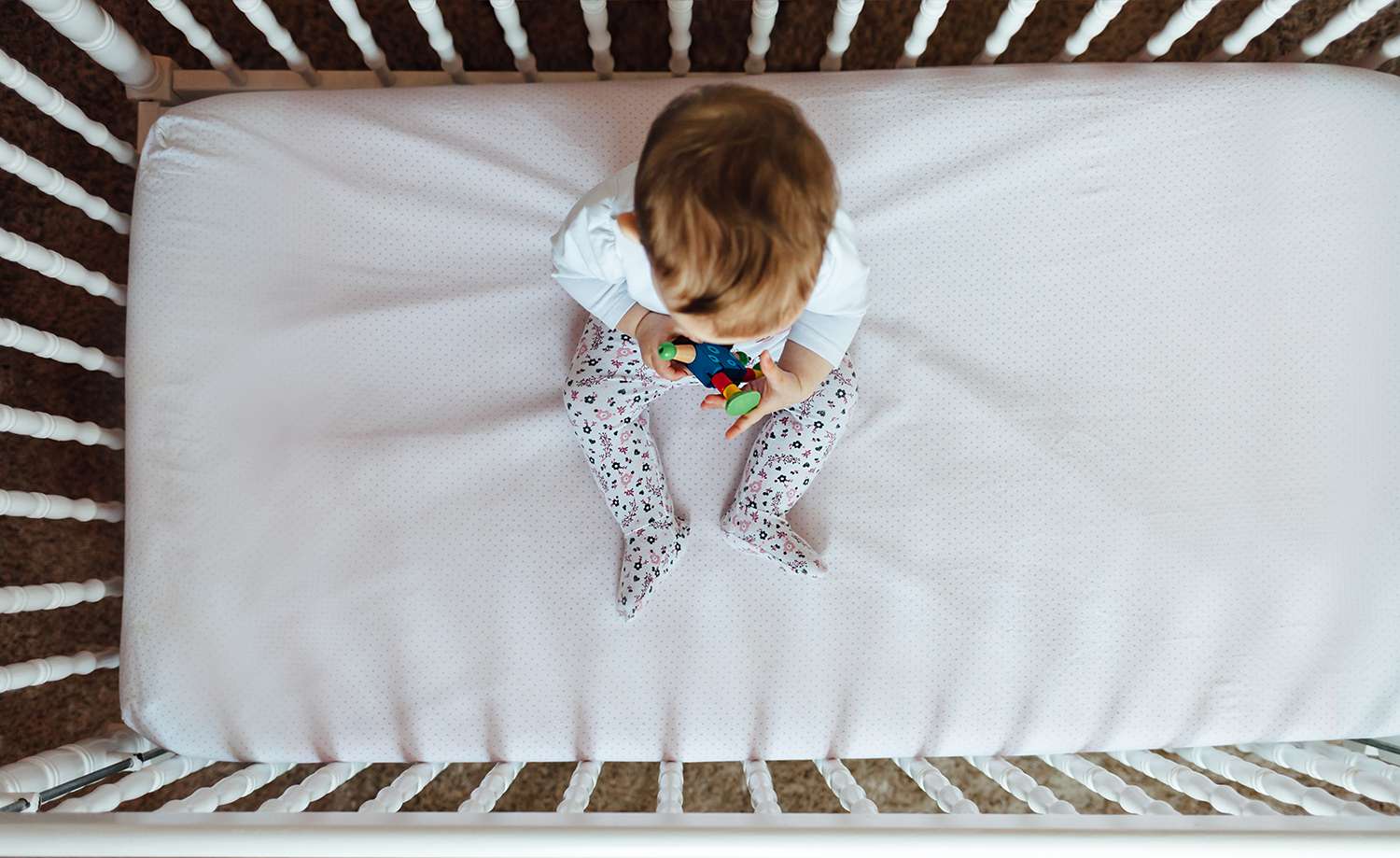
Measure the Inside of the Bassinet: Before you purchase a bassinet mattress, you need to measure the inside of the bassinet. Measure the length, width, and depth of the bassinet. Make sure to take the measurements multiple times to ensure accuracy.
Check the Manufacturer’s Specifications: Once you’ve taken the measurements of the bassinet, you should check the manufacturer’s specifications for the size of the mattress you need. Most bassinets require a mattress that is approximately 1 to 1.5 inches thick and 15 to 17 inches long and wide.
Purchase the Right Size Mattress: Once you know the size of the mattress you need, you should purchase a mattress that fits the bassinet’s size specifications. Be sure to check the mattress’s measurements against the bassinet’s measurements before buying.
Test the Fit: Before you make the purchase, you should test the fit of the mattress. Lay the mattress inside the bassinet and make sure it fits snugly and securely. The mattress should not be too tight or too loose. If the mattress is too small, you may need to purchase a different size mattress.
Consider the Quality: When purchasing a bassinet mattress, it’s important to consider the quality of the mattress. Look for a mattress that is made from high-quality materials and is free from any defects. Make sure the mattress is firm and supportive, but not too hard. It should also be breathable and comfortable for your baby.
When to Replace a Bassinet Mattress
- Cracks or Tears: Check the mattress regularly for any signs of cracking or tearing. These can compromise the safety of your baby and should be replaced immediately.
- Stains: Urine and other bodily fluids can leave permanent stains on the mattress, making it unhygienic and uncomfortable for your baby. Replace the mattress if this happens.
- No Longer Fits: If the mattress is no longer the right size for your bassinet, it’s time to replace it. All bassinets require a mattress of specific dimensions and thickness. The standard size for a bassinet mattress is 28″ x 52″ x 2″, but it’s important to check the manufacturer’s instructions to ensure that you buy the correct size for your bassinet.
Frequently Asked Questions
What type of mattress should I use for a bassinet?
Firm Foam – Foam mattresses offer extra support, providing a firmer surface for a baby’s developing spine. Look for mattresses marked as “orthopedic” or “firm support.”
Dry Mattress – Ensure the mattress is waterproof and easy to clean. Mattresses should be labeled as “waterproof and/or “anti-microbial.”
Hypoallergenic – If your baby has allergies, look for mattresses with a hypoallergenic cover and/or foam.
- Organic Mattress – Organic materials such as wool and cotton are safe for babies and less likely to cause skin irritation.
- Air-Permeable Mattress – Look for mattresses with air-permeable layers to promote air circulation and reduce the risk of SIDS.
How often should I replace the mattress in a bassinet?
It is important to replace the mattress in a bassinet regularly to ensure your baby’s safety and comfort. Here are some guidelines to help you decide how often you should replace your bassinet mattress:
- Every two to three months – If your baby is a newborn or they are sleeping in their bassinet a lot, it is recommended to replace the mattress every two to three months.
- Every six months – If your baby is older and they are not using the bassinet as much, you can replace the mattress every six months.
- When the mattress is stained or worn – If your baby has had an accident on the mattress or if it is starting to show signs of wear, it is time to replace the mattress.
Remember that it is important to regularly check the bassinet mattress for signs of wear and tear. If you notice any stains, rips, or other signs of damage, it is time to replace the mattress.
Are there any special considerations when choosing a mattress for a bassinet?
When buying a mattress for a bassinet, you should ensure that it is the correct size, firmness and made from materials that are safe for your baby. Look for mattresses that have been certified by the Juvenile Products Manufacturers Association (JPMA). This certification means that the mattress meets standards for safety, durability, performance and chemical emissions. Additionally, ensure that the mattress fits snugly and does not have any gaps or spaces around the sides where your baby could get stuck.
Are There Different Sizes of Bassinet Mattresses?
Yes! Bassinets come in various sizes, and the mattresses to fit them vary accordingly. Here are the most common sizes:
- Small bassinet mattresses: 28 inches by 15 inches
- Standard bassinet mattresses: 30 inches by 15 inches
- Large bassinet mattresses: 32 inches by 15 inches
- Jumbo bassinet mattresses: 34 inches by 17 inches
When choosing a mattress for your bassinet, you’ll need to measure the inside of your bassinet to make sure you get a mattress that fits properly.
Is a Bassinet Mattress the Same Size as a Crib Mattress?
No, bassinet mattresses are typically much smaller than crib mattresses. Bassinet mattresses usually measure around 15-17 inches in width and 27-29 inches in length. Crib mattresses, on the other hand, generally measure around 28 inches in width and 52 inches in length. To ensure your baby’s safety, make sure to buy the correct size mattress for your bassinet.
Conclusion
When choosing a mattress for your bassinet, it is important to get the right size. Measure the inside of the bassinet to ensure the mattress fits properly. You should also consider the type of mattress that will provide the most comfort for your baby. Finally, ensure the mattress is made from high-quality materials and is waterproof for easy maintenance.
